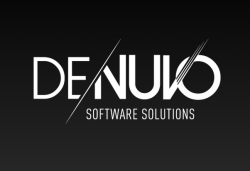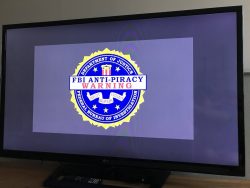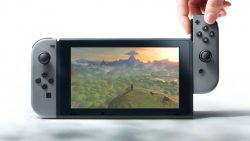Welcome to another edition of the Weekly News Roundup. The World Cup is near an end, tears and cheers aplenty, but one can’t help but be disappointed at how things are run these days. Not to say that the World Cup isn’t an exciting event, it is, but it just all seems so sterilized and commercialized. The news about the English team being fined for wearing the wrong socks, from a sponsorship point of view, just proves something isn’t quite right with the game these days.
And what does that have to do with copyright, digital video and gaming news? Nothing really, but every WNR has to have an intro and, to be honest, I’m really struggling to write a “related” one this week.
And oh yes, there’s news to cover. There are a few stories to cover, but none are what you would call the most ground breaking news stories, so this WNR will still be rather short.
![]()
Game crackers have won the latest bout with Denuvo, with well known game cracker Voksi cracking the latest version of the controversial anti-tampering system. Describing it as the “most bloated” version of Denuvo yet (with a 128MB game executable consisting of only 5-6MB of game code, the rest being Denuvo code), Voksi cracked the game ‘Puyo Puyo Tetris’ protected by v4.9++ of Denuvo, which then helped him to crack the bigger profile ‘Injustice 2’, which uses the same version of Denuvo.
This follows a recent trend of Denuvo failing to protect major titles after it had a great run, to be fair, over the last few years. It appears that a weakness has been exposed in Denuvo’s system and that Denuvo has not been able to effect a more permanent fix. Introducing more VM, encryption and obfuscation layers on top of Denuvo appears to only work in slowing down crackers, not stop them. And all of this is happening at the expense of resources.
Voksi’s grudge against Denuvo is well known and he (or she) has vowed to never stop cracking Denuvo (which he refers to as a “cancer”) until the protection is no longer feasible. With such bloat, and with the speed in which games are being cracked, it appears that particular moment may not be very far away.
![]()
You know it’s a slow news week, for both us and Netflix, that they and us both report on this “new” download feature. The new “Smart Downloads” feature will automatically download new episodes for already downloaded shows, while deleting ones that have been watched to make room. It will only work via Wi-Fi and it will probably save you about 30 seconds of work if you had to do this manually, and some will probably turn it off because they don’t want Netflix to be downloading in the background without their knowledge.
![]()
Now here’s something slightly more interesting (emphasis on the word “slightly”), Dolby Vision support is coming to the Xbox One S/X. It’s already available for those that are part of the Xbox Insider program, as a preview, but if it works well, there’s no reason why it won’t be coming to a main update soon. Unfortunately, it only works with Netflix at the moment, and not with Ultra HD Blu-ray as you might expect it to, which is a bit strange.
For those interested, Dolby Vision is a proprietary, closed HDR format that offers several improvements over the more popular and open HDR standard, HDR10. There’s also a HDR10+, which aims to take on Dolby Vision, but in a “we don’t like to pay licensing fees” manner.
======
So not too long, and not particularly important news stories, to be honest. But that’s all we have this week, so what can you do? See you next week!







